|
The Breadcrumbs widget will appear here on the published site.
On Shavuot, it's tradition to stay up all night because we overslept when receiving the Torah and there’s cheesecake. When serving H', there are priorities. (The Ari and Shir Hashirim Rabbah)
Going to Yerushalayim for a Chag ‘don’t appear before H’ empty handed' (Devarim 16:16). Be a decent guest and bring a brisket. Nobody likes guests who show up with nothing. If you're going to Gd's house, bring a lamb for dinner. Something enjoyable. Something decent. Gd doesn't need a raspberry Danish. I don't think anybody needs a raspberry Danish. I believe bringing that for dinner makes for Sinat Chinam. Probably the reason the Second Temple was destroyed. Covering food with something like a shirt, that doesn’t add heat, can be done before Shabbat, if you’re fine smelling like choolante. This is called Hatmana and can't be done on Shabbat. Otherwise, everybody would be rubbing their clothes all over their food trying to make it edible. To Note: Cooking with clothing is not suggested. It can be very expensive. Especially when cooking with Charles Tyrwhitts. I've always wondered why people come to shul with that musty smell on Shabbis day. (Yehoshua 1:8) ‘This Sefer Torah shall not be removed from your mouth. And you shall speak of it day and night… In order that you guard it to do all that is written in it. For then your ways will be successful and you will become smart.’ From here we learn that you should talk to annoying people who go on and on, if they’re talking Torah. And the best way to make money is to learn. Working will not make you money. Smart people know this. The Blog Tags Widget will appear here on the published site.
Tags:
The Recommended Content Widget will appear here on the published site.
The Breadcrumbs widget will appear here on the published site.
Some people have a tradition of showing up to shul late on the 33rd day of the Omer. Because it‘s Lag BOmer. (Rabbi Mendel)
You get it? To lag. Lag BOmer. Lagging. Showing up late. Taking your time. ‘Lag‘ in Lag BOmer is not pronounced that way, yet it still works - the value of the written word of pun. The rabbi told them to only do a few Mitzvahs. The rav explained, 'The Torah said "decrees."' (Rabbi Mendel) You get it? Decrees. Decrease. He misunderstood. They‘re different words and pronounced differently. But it's still a pun and brilliant. As we again share with you the value of the written word. Education. The government closed my bank account and told me 'relax.' They said 'Eekool.' (Rabbi Mendel) You get it? Be cool. Eekool. In Hebrew it sounds the same. If an Israeli was saying it, it would be exactly the same. I heard this pun from an Israeli ventriloquist. An Eekool is when a government agency shuts your bank account in Israel. They think it‘s cool. What do you tell someone who almost did a Mitzvah? Close but no Schar. (Mordechai) You get it? Close but no cigar is the usual saying. Schar means reward. Cigar and Schar sound almost similar. Thus, education. Not just almost a pun. And we take pride in this. How do you know the food H' gave the Jews in the desert didn’t stay warm on Shabbis? Cause that would be Hot-manna. (Mordechai) You get it? Manna is the food in the desert. Not hot-manna. Just manna. And there is more to this pun. Hotmanna is covering a pot to keep food warm on Shabbat. You can't do that on Shabbat. You can only do it before Shabbis. Manna, Hotmanna. Sounds the same. Manna in Hotmanna is part of the word, not food. Another pun of education. A pun that teaches the youth. A member of the shul locked themselves in the rabbi's office and asked a lot of questions that bothered the rabbi. They were committeed. (Rabbi Mendel) You get it? Committed, as in a crime. Or committed to an asylum. The crime here is being part of a committee. Committeed. Objectors of Aaron and Moshe wrapped Charoset and Maror with Matzah to put on a frying pan, blaming it on Korach. (Rabbi Mendel) You get it? Korech on Pesach is the wrapping of Matzah with Charoset... Korach was the leader against Moshe and Aaron. Korach sounds like Korech. Almost. It's close. Another chance to teach the children. The Blog Tags Widget will appear here on the published site.
Tags:
The Recommended Content Widget will appear here on the published site.
The Breadcrumbs widget will appear here on the published site.
Gd doesn’t change. Change is for beings in our low dark world. I feel like I’m sinning, defining H’ by saying He isn’t definable.
It’s only considered Chametz if it’s fit for a dog to eat. Hence, Simi’s choolante is not forbidden on Pesach... Simi is a bad cook. H' is One. 'One is H". One is H". One is H". In the heavens and the earth.' Why the song repeats 'One' three times?! It's very confusing. According to some rabbis walking four Amot in Israel is a Mitzvah. Others teach it’s a Mitzvah to have a BBQ on Yom HaAtzmaut. It depends who you hold by. When one moves to Israel it’s a Mitzvah to stay. Some never leave the Holy Land, because they never want to see their family. Lag BOmer is Shimon Bar Yochai’s Yahrzeit. Hence, kids make bonfires and shoot bows and arrows without parental supervision. All physical and emotional aspects of H’ in the Torah are but metaphor, and I have to find out why I was lied to in grade school. The Blog Tags Widget will appear here on the published site.
Tags:
The Recommended Content Widget will appear here on the published site.
The Breadcrumbs widget will appear here on the published site.
I just started learning about Kibud Av vEim, honoring my parents, and I've messed up already. It's about to be Father's Day and I'm in Israel. Now what do I do?
I Have Tried to Show Respect I recently became more religious and told my parents I have to move to Israel, and they have to pay for me to live in Israel, because that's what my rabbi told me. Then, I told them that I can't eat their food anymore. I did this for my parents. I didn't want them to get an Aveirah. I didn't want them to sin. I believe I said that with respect. 'Mom. I can't eat your food anymore. I love your lasagna and quiches. I just don't want your food to land me in Gehenim.' Last time I went home, I told my parents they can't watch TV on Shabbat. I am trying to make them better Jews, but they still insist on calling me Brian. I told them to never call me that again, or my Hebrew name, lest they say Gd's name in vain. And I did all of that in the name of the Mitzvah of Kibud Av vEim. My parents told me they didn't like this new concept of Kibud Av vEim. But I insisted I have to honor them. So, they told me the best way to honor them was to not be annoying and to leave. It turns out they don't like the name Mikakel. And they said that Kaleekaku sounds wrong. All said and done, this Father's Day I was stuck trying to figure out what to do. My Dad is in America I left home to go to Yeshiva in Israel. My parents appreciated that. Check for Kibud Av vEim. They had an extra room in the house to use for what they wanted. I gave them that. Check for Kibud Av vEim. So, they got a hammock put it in my room and threw out all my stuff. They expressed how appreciative they were of me leaving the house by also telling me that I won't have a place to stay when I visit. I feel like I showed a great amount of Kibud Av vEim by bringing them such great joy. I believe that when I stay at the hotel on my next visit, it will give them more room to relax and read on Shabbat. It will also give my mom extra time to make the oven Kosher for me. I think the Mitzvah is bringing our family closer. I called my parents to say I wanted to visit for Father's Day. My father insisted I don't and said I brought him so much more Nachis from Israel. He didn't consider him having to pay for my flight from Israel to be a Father's Day gift. What should I get my dad? Give dad money. After much thought I realized dad doesn't want me thinking about what he needs. He just needs money for a new drill bit. The problem is that I get my money from my Abba. My rabbi told me it's OK for my dad to pay for me while I'm learning Torah. I told my dad that this will ensure him a place in heaven. It turns out that my dad doesn't care about heaven very much. Right now he just wants some money. He is more worried about paying the mortgage in Frankville, AR. I took all his money from him when I was a child. I was a good athlete and that is expensive. Which is why he gives me a look. It's a cynical angry look of love. When I see him, I don't know if he wants to shoot me or hug me. My friends in Yeshiva tell me all of their dads give them the same look. It means they love you. If your dad paid for your day school education, that is why he gives you that look. After much thought and Torah, I decided I should give my dad a call. He pays for that bill too. I called my dad. I let my dad know how much I love him and made things awkward between the two of us. There was 'love' and then silence. Love kind of made that relationship uncomfortable. Where Can I Find a Dad? I realized I didn't have a dad in Israel. I wanted to show immediate joy to a father on this Father's Day. I went to the stores. Tried to find a dad. I went to Fox. Dads don't shop at Fox. The shirts come too tight. I went to Shmulik's Hardware and Chumus. I went to Melech HaFalafel. They do not sell dads. One shopkeeper was quite bothered by my idea of selling dads and insisted slavery was wrong and that the Torah never spoke of selling dads. It was then that I realized you can't purchase or adopt dads. You can only adopt kids. I was stuck with mine. I told my dad I would write him a letter for Father's Day and he asked, 'Am I going to have to pay for that too?' Follow Up Notes I hope me and my dad can work through the love the next time I visit. It was a hard one. The statement 'I love you' is a very uncomfortable situation to work through. I hope we can overcome that. My rabbi later taught me that Father's Day is not a Mitzvah. Honoring your father is a Mitzvah, and that must be done every day. I started calling my dad all the time. He didn't like that. My rabbi then taught me that I have to honor him as well. This honor thing is getting to be a bit much. My father can't afford it. I just saw an Israeli man in a really tight shirt. It was a bothersome moment for which I feel I must do Teshuva. Some Israeli men do shop at Fox. It was almost as bad as my first visit to the beach in Netanya. A horrific sight I went to the Mikveh for. I am still asking H' for forgiveness. No matter how religious I grow to become, I will never go to an all-male beach again. Lesson Love your dad no matter how far away you are. Not having to pay for you to visit will make them happy. Honor your father. Honor the one that gives you life. There is no substitute. You can't pick up a dad. These men don't want to have to pay for more people. You can't buy a dad. That's not a good use of money and they might lock you up for that. The guilt I feel for not fulfilling this Mitzvah on Father's Day, though it's not a special Mitzvah is enormous. So much guilt. I believe that is the lesson of Father's and Mother's Day. Feel bad. Feel like you didn't do enough. I truly pray my father is able to put aside enough money for me to fulfill Kibud Av vEim the right way next Father's Day. The Blog Tags Widget will appear here on the published site.
Tags:
The Recommended Content Widget will appear here on the published site.
The Breadcrumbs widget will appear here on the published site.
Rambam: Yesodei HaTorah 1:125/20/2024
Law 12: It's Just a Visual - Not a Lie
Since H' is not affected by the physical world. All of the stuff in the Torah and Navi is just metaphor and image. Did the Rambam just say the Torah is lying?! No. The Rambam is saying we're idiots and we can't understand anything other than baseball, how to match two shades of blue that don't clash, and anything about a car other than how it works. H' doesn't laugh. H' doesn't cackle. There is no snort coming out when you make a joke. H' is not amused. H' is. He is just is. He is not amused by the joke about the guy eating non-kosher because of how apples are served. Especially because He heard well over three million times. If you're offended that I am calling H' a He and not a She, H' doesn't care. (Shemot 3:14) 'I am who I am.' H' wants to be known to us as this. Otherwise, we'll start asking Him questions, wanting to hang out. And that won't make H' happy. Why? Because H' just is and it can get annoying hanging out with you at the bar and watching you get Shikur. He figures that if we are confused we won't be as annoying, and we'll aske less questions. 'I am who I am.' That's skirting a question if I have ever seen it. I would never be able to get away with this. People ask me what I'm working in now. 'I am me.' 'No. Rabbi David is unemployed.' (Malachi 3:6) 'I, Gd, have not changed.' That says it all. He doesn't get happy or mad. H' is always H'. I feel like I am sinning defining H' by saying He is not definable. I wish they would've taught me this stuff in elementary school. I would've cared less about not knowing stuff. Come to think of it, my lack of listening in class had me understanding H' a lot better than those fools getting straight 'A's. 'I have not changed.' The last time I heard that was when that girl broke up with me. I believe she was blaming me for that breakup. This physical stuff and emotion affect people. It is for the dark and low beings. H' is above all this. He is exalted. H’ just gets bothered by you. If you felt good, just know you're a dark and lowly creature. A creature who is affected by pettiness and bathroom humor. What am I supposed to do? How do I relate to H'? We are not here for answers. We are here to confuse you. Now that we can relate to H' through metaphor it's good to know that He is not affected by what you do or think - and that is a metaphor. That should help with your prayers this morning. I am beginning to think that saying 'metaphor' is like saying 'psyche.' So did the Torah say it or did the Torah not say that H' has an outstretched arm?! Then how did H' take us out of Egypt? That wasn't a metaphor. The Rambam better deal with this in the next chapter or I will metaphorically stop learning. I am sure the Raavad has something to say about this. Now that we have finished the chapter teaching us that everything we thought about Gd is not true. And that all of our connection with H' is based on a physical world that H' is not affected by. Have a great Shabbis. And be on time to shul. You should use it as a time to connect with H'. And remember H' rested on the seventh day. Oh shoot. That's a metaphor. Now I'm confused. And I wasted twelve years in school learning about how I can make H' happy by doing Mitzvahs and how I usually make H' mad. Now that it is clear that we cannot define H', we will move onto chapter two and define H' and our relationship to Him more. Lesson: We're meant to follow in H's ways. How do you become exalted? Be very much not you. And practice Mitzvot. That's how you end a good Dvar Torah - Learn Torah and do Mitzvahs. If you do that, H' will probably not care. He definitely won't get all emotional about it. I know the Rambam is going to say something about Mitzvahs being the way to make this physical world exalted and godly. He's got to. I really hope the Rambam doesn't stop here. Oh shoot. I am worried he stops here. There is no cliffhanger. The physical stuff is petty. It's fleeting. That's my take. I'm finished for now. I'm going to go work out. Hit the weights. Try to get in shape. And I am still trying to figure out how H' took us out of Mitzrayim with an outstretched arm. Could one arm have freed a whole people from slavery? Just one arm?! I will think of that while doing some squats to connect to H'. The Blog Tags Widget will appear here on the published site.
Tags:
The Recommended Content Widget will appear here on the published site.
The Breadcrumbs widget will appear here on the published site.
The Kibbitzer Photo Album XXXI3/15/2024
Let's take a stroll down memory lane to see how a Frum Jew looks when vacationing, admiring Frum toilets, while David complains about children giving Tzedakah with the Kibbitzer's pictures of laughter from last month. We want to thank David Kilimnick for complaining about Mitzvot and boardgames that teach Mitzvot.
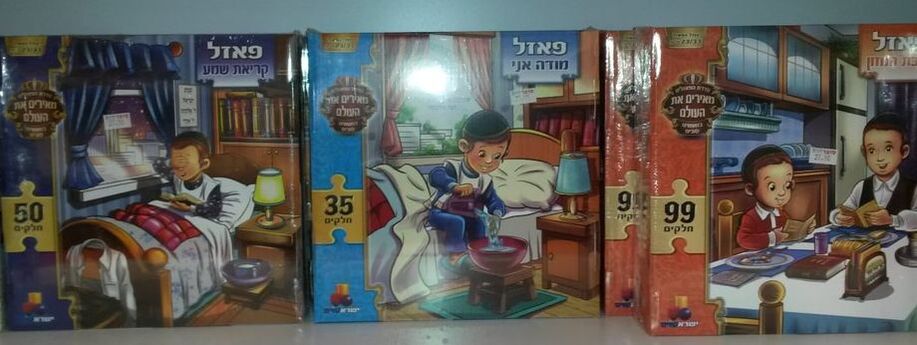
Bothersome. The prayer puzzles are a bit much when you’re teaching the kid the bedtime Shema and he has to do a puzzle at the same time. It’s impossible to fall asleep... The Mode Ani kid is filling up that bowl too much. There is no way he is not spilling that all over the house when he wakes up. And the true lesson is only boys have to do Mitzvahs.

A Frum tourist. That’s the look... shorts, Tzitzis out, and a baseball hat so people can’t figure out I’m Jewish. Next vacation we will be sporting the Frumer tourist look of black pants, a polo shirt, Tzitzit out and a baseball hat... The shorts are a dead giveaway I'm Jewish, with the extremely white legs.
The Blog Tags Widget will appear here on the published site.
Tags:
The Recommended Content Widget will appear here on the published site.
The Breadcrumbs widget will appear here on the published site.
As we discussed in the Halachas of Tzitzit, an Onen is not required to practice the commandment. From the death of a close relative until the time they are buried, the pre-mourner (Onen) must focus on burying their loved one. Thus, the pre-mourner is not required in positive commandments. Due to the pleasure of not having to do Mitzvot, this has led to many people not being buried for a very long time. If people would just enjoy Tzitzit.
Let’s get into the history of Tzitzit and undershirt development and why people are all of the sudden enjoying wearing Tzitzit. Wool to Cotton The first Tzitzit were wool. Back in the Balkan Peninsula in the 12th century, it was much easier to grab a sheep and de-hair it than to plant cotton seed. Wool Tzitzit first became popular in Czarist Russia, sparking the growth of the Chasidic movement. It helped those living without decent heating in the Kiev and Lvov regions. This is why Lvov has been part of every country in Europe over the years. Bad heating. Wool Tzitzit helped with warmth and allowed Jews to learn Torah during the day. Yet, it was itchy, which the snobs of Western Europe did not like. To quote a great student of a teacher who was educated by a rav, who was educated by a great rabbi and student of a sage, 'The itch of the Tzitzit tassels on my leg is enough. I don't need to walk around scratching my torso as well.' The Joy of Cotton and Linen It was the days before undershirts. Mind you. There were no undershirts, cotton was not readily available in the Pale, and there was a lot of discomfort. People were so mad, they even went out of their way to purchase Tallises to swing at others. And forget the summers. The wool Tzitzit were so warm, people were sweating all the time. Showers were necessary daily, and drought was a natural result. Thus came cotton Tzitzit. As Shlomo Yankel exclaimed, 'Now these breathe! It's hard to control on the skin, but it breathes.' And then linen came along, and life was beautiful. Due to Shatnez (the law of not mixing wool and linen), people didn't have to worry about having to wear wool Tzitzit outside of Czarist Russia ever again. Tyranny came to an end. Nonetheless, there was still a bit of undergarment movement. Polyester Tzitzit Some fool decided to introduce polyester. Shlomo Yankel was in shock, and on behalf of the Jewish people he questioned, 'How does something so thin make me sweat more than wool?!' Why people were creating new Tzitzit still was an anomaly. But we as Jews are innovative. Just look at the prepackaged Chanukah oil filled cups and Sukkot decorations with Santa Claus on them. Innovation never ceases with our people. History Of Undershirts Undershirts only developed in the early twentieth century. This explains why the Industrial Revolution truly took off in the 1900s. People needed more undershirts. The American forefathers were sick of having to put on a set of clothes under their clothes. The simple concept of short sleeve cotton against the body was revolutionary. A second Revolutionary War almost took place when John Long suggested undershirts be made from wool. That was shot down. Literally shot down. And nobody heard from John Long again. Nonetheless, we are still stuck with his thermal underwear, also known as long johns. Greatly usable in the winter. The businessman he was, he did suggest we wear them during the summers as well. It was at this moment, with the arrival of the undershirt, the modern Tzitzit became fully bearable. Though they were not required, even women insisted on wearing Tzitzit. Rav Scheinberg was so comfortable, he decided to wear tens of Tzitzit at once. The Tzitzit revolution was underway. We had cotton. We had comfort. We had normal undershirts. John Long was shot. Now what do we do? We make Tzitzit as small as possible. Would Thomas Jefferson have worn Tzitzit if he had a decent undershirt? We will never know. Mesh The tiny mesh Tzitzit era of the late 1980s. It was a very uncomfortable decade. Some people even stopped wearing undershirts. Comfort was forgotten. The rabbis got rid of the mesh Tzitzit quite quickly, as mesh is a little too provocative. Some Tzitzit were a single tiny cloth. A string with tassels attached. What the '80s did to the soul of our nation is still something we as a nation are rebounding from. It all can be traced back to David Lee Roth. The Mesh Tzitzit also moved as much as a Tallis. Undershirts with Buttons Years went by and the undershirt was remembered. Fruit of the Loom reminded us of comfort. Innovation never stops with our people, and the Hanes three pack price hike was too much for us to bear as a people. To quote, 'We need to make them into Tzitzit.' So, they created an undershirt Tzitzit that was with a button. Known as the buttoned undershirt fiasco of 1993, worst idea behind mesh, or the Neatzit Insurrection, this was the worst use of undershirts. Very loose, and a random metal button you had to snap on each side. Most mid-age Jewish men did not have the dexterity to look to the side and snap a button. And with the loose fit, our Jewish men put on an average of fifteen pounds when wearing Tzitzit. When Jewish men were told they needed to start going to the gym to work on their agility for button snapping, they protested the undershirt button Tzitzit. The phase lasted three weeks, a mourning period. To this day you can find a pair of snappable undershirt Tzitzit in your dad's closet. In protest and due to the trauma suffered from Neatzit, Jewish men have not been to the gym since. As a community, we went back to wool. Anything was better than a button. People found themselves sweating again. For some reason, the undershirt with a button was hated so much that our community reacted with hatred towards cotton. Evolution of the New Undershirt Tzitzit Ends Finally, some brilliant man in Israel in 2021 said, 'Why the button. Undershirts are comfortable.' A Tzadik. To quote Israel News Syndicates, 'Something good came out of corona.' They took undershirts, cut the sides, got rid of the button, and everybody was comfortable. A thread count of a hundred forty. Fits nice and snug. It's a joy. All the soldiers want Tzitzit now. The four cornered garment has taken off in the Israeli army. It's the stories of Jewish life saved. It's the story of the development of the modern-day undershirt Tzitzit and the comfort they offer. Either way, it's beautiful to see Jews practicing Mitzvot. And people are getting buried on time. We as Jews are forever indebted to Fruit of the Loom. No thank yous were ever sent. Epilogue to Our History To wear the undershirt Tzitzit, if you want to smell decent, you still need an undershirt. Otherwise, after two days of Tzitzit you smell disgusting. And to this day the Tassels running down the legs itch. Will they invent a Tzitzit leg separator? The Blog Tags Widget will appear here on the published site.
Tags:
The Recommended Content Widget will appear here on the published site.
The Breadcrumbs widget will appear here on the published site.
Any garment with four or more corners needs Tzitzit. That being said, we don’t walk around with a Tallis, a prayer shawl, anymore.
I thus present to you the history of Tzitzit. A history which I re-edited multiple times to make sure the second ‘t’ was present in all spellings of Tzizit. Please note, we are not going to go into the history of the cloak Tzitzit. Us Jews consider Robin Hood a thief, and Friar Tuck was a bandit. And we thus do not identify with cloaks. We will leave it there. Now let us focus on the beginning of the evolution to today’s undershirt Tzitzit. Who Wears Four Cornered Garments Back in ancient times, people loved four cornered garments. Under Roman rule everybody loved the four cornered look. It was the style. Egyptians were also big on the four-corner look. Known as the quadrigape, t was very hip in the years 1,400 to 3,485 from creation. It Used to be a Tallis The Tallis was very popular in the BCEs. It was the look. Everybody was wearing long Tallises, kind of like a poncho. After years of drought, many Jews felt the poncho wasn’t necessary. So, the wrap around Tallis as we know today became popular, as well as hitting people with tassels. Many people started showing to shul with their blankets. It was comfortable, easy, and with the quick bed to dress turnover people were showing up to shul on time. However, once the rabbis started making them put Tzitzit (the tassels) on the corners of the blankets, it became too much of a chore. Blankets were thus designated for sleep. And spouses started getting along again. To quote a couple overheard in therapy, 'Every night, right when I was falling asleep, I was getting smacked by tassels.' At this time, the Tallis of today, the white 2,000 thread count sheet was introduced. People wore them over their clothes. Yet, with all the Roman tassel hatred, people were looking for something to wear under the shirt. They tried the Tallis. Yet, the Tallis under the shirt was not practical. Adjusting the Tallis Have you ever tried wearing a Tallis under your shirt? You can’t adjust it. The average Tallis wearer has to adjust his Tallis at least eighteen times during Shacharit. That’s where the meaning of Chai comes from. It’s the number of times your Tallis slips off your shoulders during morning prayers. The ancient Chai necklace used to be in the shape of a Tallis. I couldn’t find proof of this, so the source for future generations will have to be the Kibbitzer Magazine and myself, Rabbi David. Sometimes history is better given over in the form of conjecture. People also end up hitting me with the tassels each time the re-fix their Tallis. For my safety and for the times I forget to bring eye protection to shul, the Tallis has not remained in regular daytime use. Not needing explanation, in the times of the Second Temple many fights broke out in the Shuk, due to Tallis adjustment. Due to baseless hatred caused by Jewish lack of Tallis control, we developed what is known as Tzitzit (not just tassels, but what we put the tassels on- to complicate things we use the same word for both). It was too late. Too many people had been injured by the membership at my shul, hatred was rampant. The Second Temple was going to be destroyed due to hatred amongst our people. It’s hard to make peace with somebody who swings a dangerous tassel at you on a daily basis. Tzitzit Are First Developed Tzitzit, The Tallit Katan, The small Tallis which adopted its name from the commandment to have Tzitzit (tassels), was developed. Less violence, less need for ophthalmologists, future generations could have peace, and no more garment slipping off the shoulders. Redemption was now a hope again. Regular clothes were able to be worn. You put the Tzitzit under them, and you didn’t have to constantly take off your shirt in public, to adjust a Tallis. A horrendous sight. It was a practical move. A move that stopped much baseless hatred due to out of shape Jewish men adjusting their Tallis. The constant need for Tallis adjustment is also why they stopped making Tallises out of silk in 2001. Why it took so long to figure out that silk Tallises were impossible?! Epilogue to Our History Now people only wear Tallises in shul. It helps keep warm when the Gabai insists on turning up the air-conditioning. Fights still happen in shul, but they are blatant. If you get hit by Tzitzit tassels, somebody definitely doesn’t like you. Will the Biblical cloak Tzitzit dress come back? We are not sure. History will tell. As long as undershirt Tzitzit are around and not too many Jews get hooked on Dungeons and Dragons, the cloak Tzitzit will remain obsolete. The Blog Tags Widget will appear here on the published site.
Tags:
The Recommended Content Widget will appear here on the published site.
The Breadcrumbs widget will appear here on the published site.
The Rambam gives us beautiful insight into how to give Tzedakah. This is found in the Mishnah Torah Laws of Gifts to the Poor 10:7-14. Let's delve.
Level 8: The giver is pained by the act of giving Who doesn't hate giving?! Known simply as Tzedakah, this is when you give charity. For instance, when somebody is in need, and you do a kind deed and give them money to help them out. When you take that money and give it, you feel a sharp pain in your shoulder, known as kindness. This also known as dues. Level 7: They give less than they should but does so cheerfully Of course they're cheerful, they're barely giving anything. They're saving money on this. This is when they come around with the Tzedakah box at shul and you put in a dollar. I've never seen anybody put more than a dollar into the Pushke box. Level 6: Gives after being solicited This is when you're stuck at a red light and a stranger knocks on your window. You're scared. To ward off the potential threat, you pull out a dollar and get them angrier. This is also when a stranger comes to your front door. You give them money in fear they'll break in. Then they see you have a wallet and you end up giving more. Level 5: Donor gives without being solicited This never happens. I've been on a member of congregations around the world. This has never happened. The closest thing to this is when you get a calendar for Rosh Hashanah, and you feel bad that these people have been chasing you for eighteen years. So, you give them Chai dollars. Eighteen dollars of generousness. You feel you've done your job in helping purchase a house for the homeless children in Israel. If it ever does happen, if somebody donates from their heart, you'll find out. There will be a plaque. Level 4: Recipient knows the donor but donor doesn't know recipient You'll know who you gave it to when you get nasty looks at shul for being cheap. Level 3: Donor knows the recipient but recipient doesn't know donor You give money and you're constantly asking yourself why this guy can't get a job. And then they end up pledging two-hundred dollars for Maftir. Level 2: Neither donor nor recipient knows the other Somebody else is stealing this money. Level 1: Donor gives recipient the wherewithal to be self-sustaining This is the highest level of charity, as you're not even giving charity. Hence, it's also the most beloved form of Tzedakah. The greatest way to help somebody according to our rabbis is not to give them the fish, but to teach them how to fish. You give them an activity to get their mind of the fact that they're broke. Help them escape from their messed up lives for a few minutes with something to do. Maybe they'll forget they're hungry. Nowhere does the Rambam say to give a lot of Tzedkah. He knows nobody will do that. Tithing is also not mentioned as a level here. He knows. The greatest level, which the Rambam doesn't mention, is when there is a building put up with your name on it. The Blog Tags Widget will appear here on the published site.
Tags:
The Recommended Content Widget will appear here on the published site.
The Breadcrumbs widget will appear here on the published site.
I've noticed these new food pantries on lawns. Boxes on poles, for people who need food. I have thoughts.
The food pantries are a great idea. Tzedaka is beautiful. Town food pantries have worked for years, but they were never on the lawn. On the front lawn is a perfect spot for people to pick up food on their way back from the grocery store. You forget some stuff and you check to see if your neighbor picked up an extra orange juice by accident. Beautiful. Now, we deal with the issues, so we can better these pantries. Let me express this in rant form, so the truly feel my frustration and longing to help the poor. What We Give Them is Wrong It was a can of peas and carrots. Who likes peas and carrots? That's a good question my Talmid. Nobody. Nobody likes peas and carrots. No hearts of palm. No pineapples. Poor people like cut-up pineapples. Everybody loves the juice. Nobody is drinking carrot and pea juice. One pantry I passed had salt. Nothing but salt and paprika. Just spices and condiments. Not even a Proto streak. No rice. No microwave to heat up the peas and carrots. Just salt and paprika. It was a Chutzpa. It was the winter and the sidewalk in front of their house was slippery. They were hoping the poor people would salt it. That's why they had Kosher salt in the pantry, with the extra-large granules. I Didn't Know What It Was I thought I was going to get a book. I saw the food pantry case on the lawn. I thought I was going to find Dr. Seuss. I wanted Green Eggs and Ham. Kosher ham. Instead, I end up reading ingredients of Green Peas and Carrots. Give Real Food I thought they would have a roast. I thought, at least microwave on the lawn for the hungry to cook a hot meal. I thought there might be a checkered cloth. You open the pantry and your family can have a picnic on a neighbor's lawn. Nope. No Protos. Spam? No. Just a can to feed the children. It's a Setup And it's not fair to these poor people. You put it on your front lawn. They think they're supposed to take some food, and the next thing they know, they're arraigned for trespassing. Disgusting. Not a Mitzvah. First you bait them and then you pop out of your home with a shotgun, yelling at the poor family, 'Put down the peas and carrots. That's our lawn. Get away from our storage pantry. We didn't have room in the kitchen to store the salt.' And they didn't even have a can opener to fight back. It's all wrong. This isn't Charity If they don't get shot, the poor people are stuck bringing a can home for dinner, spending the rest of the day separating out peas. It's a task. No book to read. Just carrots and peas. And salt, to parch their throats. Malnourished with parched throats. Stuck with paprika and nothing to spice. Sorry. I get very mad about paprika. And no can opener?! Put a can opener in there. Homeless People Need Meals Not a Can One person told me it's for snacks. Snacks? Are homeless people running around with a shopping cart full of bedding, coats and can openers, so they can get a little pick me up before dinner? And why is there no table?! Is the plan for homeless people to take the can home? Ways to Practice Charity If we're truly trying to feed the poor, we should have fridges and ovens on the front lawns. Front lawn kitchens. If I saw a fridge, at least I wouldn't expect to see Dr. Seuss. I would be a happier man. And I wouldn't be let down with poorly written paragraphs about sodium percentage dietary guidelines for daily intake. The greatest way to help somebody according to our rabbis is teach them how to fish. Not to give them the fish. Which is why many people don't give Tzedaka but Mussar. They rebuke them and tell them to get a job, and you feel like you've done the Mitzvah of giving charity. You tell them to get a job, and then you give them a fishing rod, so they have something to do during their leisure time. Self-sufficiency is the greatest form of Tzedaka. If we really wanted to help, we would have front lawn cooking lessons. We would have can opening seminars. If we truly wanted to help poor people, we'd teach them to build a food pantry. This way, they could have the food pantry where they live, and they wouldn't get shot for taking a can of peas and carrots. All of those truly feeding those who are in need have my greatest respect. Keep it up. Even if it's a can. Next time, we shall delve into the issue of soup kitchens, and how poor people are starving because we're feeding them soup. The Blog Tags Widget will appear here on the published site.
Tags:
The Recommended Content Widget will appear here on the published site.
The Breadcrumbs widget will appear here on the published site.
Don't come to the Beit HaMikdash on Chagim without a Karaban. You must show up with to the Temple with a sacrifice.
When you travel to your cousin's Bar Mitzvah, do you bring a gift? Exactly. And now you bring nothing to Gd?! Shame. Bring a gift. If we learned anything, be a decent guest. You're visiting Gd's house. Don't show up empty handed. Nowadays, people bring letters to the Kotel. That's not a gift. There's no Mitzvah for that. No host needs a postcard from a friend who's looking to get married, but can't go out of their way to visit. Hosts want food. You show up to dinner with a dish. You show up with a note that says 'please forgive us for not bringing anything,' you're not getting invited back. Well, that's what you're doing at the Kotel. You're bringing a note that says something went wrong and you're sorry. Nobody likes people who show up without a gift. You show up to the Temple with no meat, and then to top it all off, you don't have the first fruits basket. You're a Temple taker, and the Kohens are all starving and acting real smug. I am not suggesting to have a barbecue at the Kotel. It's not the Temple. Bringing nothing is a huge letdown to the hosts. I've been witness. 'Mark is here... Oh shoot. He brought nothing. He's just a letdown... I thought he makes a nice stew too... Nope. Nothing. Not even a gazpacho... I think he knows we invited him. He's here. We won't have him again. Come in Mark. Take off your shoes. Only people that bring a gift can leave their shoes on... I know we invited him, honey... Didn't he at least bring wine?! Nope. Nothing. Just here to eat. To live off the fat of the land. No appreciation... Wine and stew shows appreciation, Mark. We're having Matzah for dinner now.' A sacrifice is a lot of meat. The problem is most people show up with dessert. There is no commandment to bring a babka. Anybody can afford that. It would be much better if people showed up with a nice roast. If you're eating at our home, bring a roast and you will have an excellent dinner. Why people host that can't cook is a different story. And don't show up to my house with a broccoli lokshen kugel. A broccoli quiche is OK. If it's in lokshen form, it should be spinach. Spinach lokshen kugel is excellently tasty. I don't believe that is a commandment in the Torah, but it should be. It would make us happier. Spinach lokshen kugel and a roast. If you're eating at our home, we'll provide dessert. You provide the spinach lokshen, roast and wine. If we've learned anything from this Mitzvah, never depend on the hosts to feed you. The Blog Tags Widget will appear here on the published site.
Tags:
The Recommended Content Widget will appear here on the published site.
The Breadcrumbs widget will appear here on the published site.
Make your wife happy the first year.
After the first year, don't even try. It won't happen. For one year you should make her happy. After that, you can be honest. Complaining about her cooking is suggested. After the first year, there is no reason you should be eating dried out corned beef anymore. Arguing about the kids after the first year of marriage is also tradition. You will want to blame her side of the family for anything that is off in the child. For the first year you have to smile. After that, football games are the best way to spend your time. TV should be running all the time. Don't even try to make her happy after the first year. She married you. It won't happen. The Pasuk teaches, (Devarim 24:5) ‘When a man takes a new wife, he shall not go to the army, and not obligate himself to anything. He shall be free for his home for one year, and he shall make is wife whom he has married happy.’ It's already enough to try make his new wife happy. We don't want to throw anything else on him, like war. After the first year, get out of the house as fast as you can. Problems start after the first year. At that point, you should be hanging out with the boys. That's how you keep a marriage together. After the first year, it’s better he goes to war. Usually, the wife insists, ‘Get out of the house and do something.' Many times they request the husband goes to the frontlines. Once the fights start, that's your sign to get out. Enlist. War is preferable. It allows you more time out of the house. And there is less fighting in war. Many fights have been caused by the 'not obligating himself to anything' part. Many husbands have used this as an excuse to relax for the year. Wives have used 'a good for nothing' to describe their husbands who keep this Mitzvah. 'He's a good for nothing.' Once she starts calling you a good for nothing and yells at you for not having a job, that's when you should go to war. Join a tank unit. It will be harder for her to find you there. How many old wives does he have? That’s a question. That might be why this new one is mad at him. The most important take away from our Mitzvah today is to not try to make your wife happy after the first year. That is too much already. And as we know, you can't ask somebody to keep a Mitzvah that's impossible to do. The Blog Tags Widget will appear here on the published site.
Tags:
The Recommended Content Widget will appear here on the published site.
The Breadcrumbs widget will appear here on the published site.
It's a Mitzvah to permanently place a Mezuzah. As it says (Devarim 6:9, 11:20), ‘And you shall write on the doorposts of the house.’
This Mitzvah caused much anger amongst the parents pf the Jewish people. Their kids learn this Mitzvah at school, and they come home and destroy the house. They hear to write on the doorposts and they can't wait to get home. I can't tell you how many times I've heard parents reprimanding their children, 'You’re killing the door. What are you doing?!... Go to your room and don't write on it.' To which the educated child responds, 'The Torah says…' And then the kid is taken out of Jewish day school and sent to public school. It happens time and time again. At first they thought their kids were using erasable whiteboard markers. Who would command anybody to ruin a beautiful doorway?! When they found out the kids were using Sharpies, all Gehenim broke loose. Parents were outraged. 'How can H' give such a commandment?! It's enough that we measure the kid's height on the doorpost once a year.' It turns out that measuring a child's height is not a Mitzvah in the Torah. Even so, many doors have marked growth of children. Once a child reaches Mezuzah height, tradition is to stop marking the doorpost. This misunderstanding of the Mitzvah by elementary school kids and art teachers is why the Mezuzah box was created. A box to hold the words of the Torah that are permanently affixed to the door. This way the kids can do their art on that and don't kill the doorposts. So many ancient homes in the Ottoman Empire were destroyed by Jewish children and their graffiti. To this day mothers have to yell at their kids, 'No. Don't write on the wall. Here. Decorate the box...' Sometimes they even give them a little slab of wood to draw on, so that the kids can be creative on a future Chanukiah. Since the Mezuzah fiascos of permanent poor outwork on lintels, we have developed many festival art opportunities for holidays. They create Sukkot decorations, Purim masks, Pesach Seder plates. Now kids force us to hang their artwork, as commanded by the Torah, destroying the Sukkah. Next time, we will talk about how people have misunderstood the Mitzvah of Hiddur, beautifying the Sukkah with the artwork of third graders. We will also discuss ways in which to throw out the pathetic art the kids bring home from school. The Blog Tags Widget will appear here on the published site.
Tags:
The Recommended Content Widget will appear here on the published site.
The Breadcrumbs widget will appear here on the published site.
The Rambam teaches that to do Teshuva (repentance) correctly, you must confess (Viduy) and say 'I will never do it again.' We learn from here that the most important part of repentance is to lie.
Rambam Hilchot Teshuva 1:1 To do proper Teshuva, you must do Viduy which consists of ‘Please H’, I have sinned by accident, I have sinned purposefully, I have sinned in defiance, before You. And I did such and such. And I regret and am embarrassed by my deeds. And I will never return to this again.’ Hence lying is the essence of Teshuva. You have to lie to God with sincerity. ‘H’. I feel so bad for having a good time. I will never do it again… Or at least until after Sukkot, when You stop judging us.’ This guy seems to have done every sin imaginable. The real question is, what is 'such and such'? 'Such and such' is a long list. It usually starts with eating chocolate. Chocolate seems to be the biggest sin people are worried about. That's why you hear about vows of not eating chocolate again when it comes to New Years. Other such and suches are 'I had the best burger of my life at Wendy's.' 'I watched too many series and didn't learn enough Torah.' 'People needed me and I enjoyed myself instead.' I've got to be honest. If somebody every tells me they did such and such, our relationship is over. Nobody does such and such to me and gets away with it. It's rude. Have you ever heard anybody regret something and not do it again? No. People always eat chocolate again. The statement my congregants should make is, ‘It will never happen again till Sukkot, when I forget about it.’ Or 'I would've never said that if I wasn't worried that I would be written in the book of death.' Or 'It's my rabbi's fault. I blame him for everything.' I pray for all that you will be able to celebrate full repentance, and stick to your lies, so you don't end up in Gehenim. And those lies should have you written in the book of life, enjoying chocolate. The Blog Tags Widget will appear here on the published site.
Tags:
The Recommended Content Widget will appear here on the published site.
|
A well put together cover page for a Jewish newspaper. I knew I was reading a Frum Jewish newspaper, as they found a way to fit 28 ads on the cover page. And the feature article is an ad for Amor jewelry... A properly written Jewish magazine should be advertisements. I once read a non-religious magazine, and I felt like a sinner when I read an article to only find there was no phone number at the end of it. I felt defiled… It’s a shame the Amor ad is so big. They could’ve got another 20 ads in.
(Shulchan Aurch 568:1) One who eats by accident on a fast must continue fasting. Making for a three hour fast to fully mourn the Churban of the Temples. I believe that break between meals fully calls to heart the true yearning of my soul over the loss of the Batei Mikdash... You can't eat once you remember you sinned, as one who committed a sin can't commit a second by snacking once they're already full.
Categories
All
Archives
July 2024
|
© 2021 Kibbitzer Magazine and JHF. All rights reserved.
The Kibbitzer, where we take Jewish comedy seriously!!! If you are offended, it's satire.
A friend of the Off The Wall Comedy Theater, JHF and The Kibbitzer are here to bring unity and Jewish connection for you, in honor of Rabbi Kilimnick ZT"L.
The Kibbitzer is Funded by the JHF (The Jewish Humor Foundation) and you.
Contact us to make a donation and to sponsor Harbatzas Tzchok, the spreading of tradition through laughter, with articles or series in honor and memory of your loved ones.
The Kibbitzer, where we take Jewish comedy seriously!!! If you are offended, it's satire.
A friend of the Off The Wall Comedy Theater, JHF and The Kibbitzer are here to bring unity and Jewish connection for you, in honor of Rabbi Kilimnick ZT"L.
The Kibbitzer is Funded by the JHF (The Jewish Humor Foundation) and you.
Contact us to make a donation and to sponsor Harbatzas Tzchok, the spreading of tradition through laughter, with articles or series in honor and memory of your loved ones.




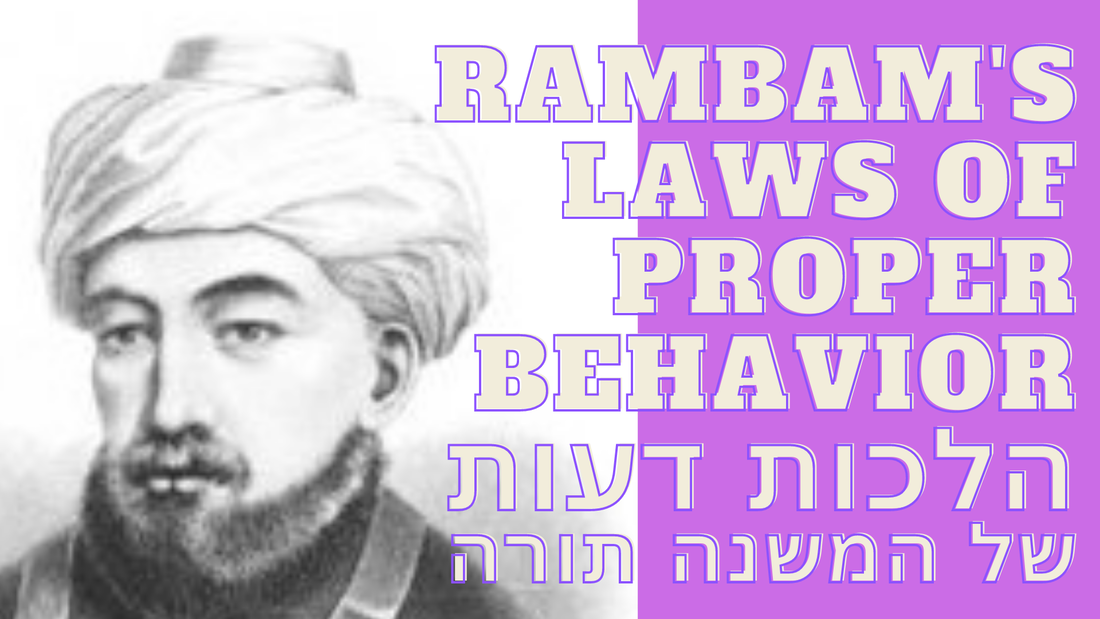
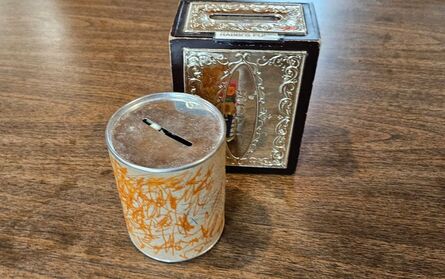




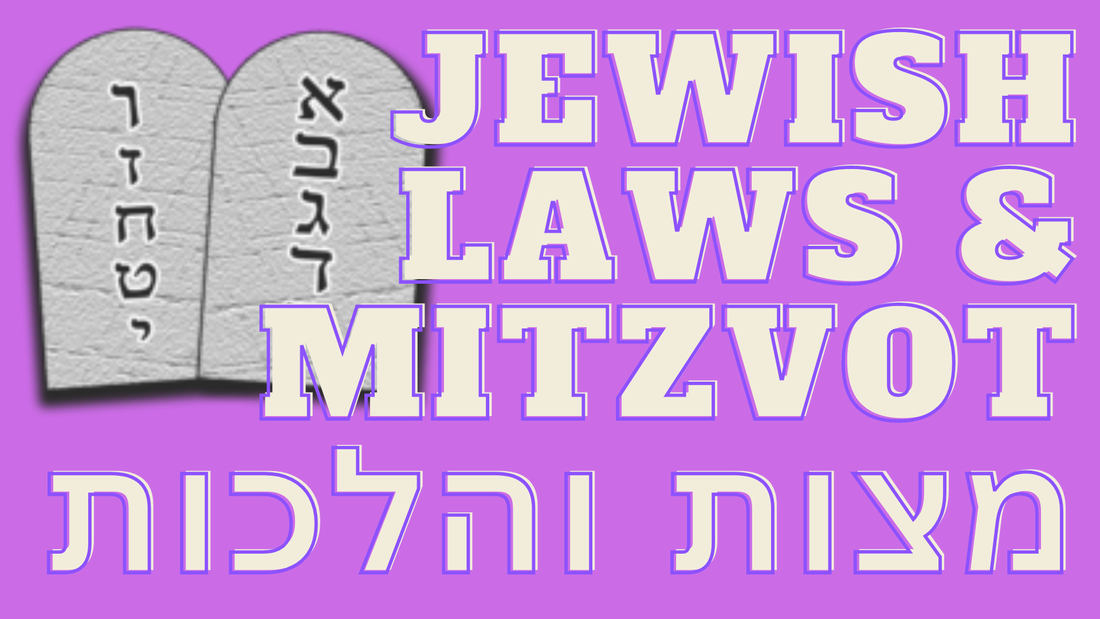
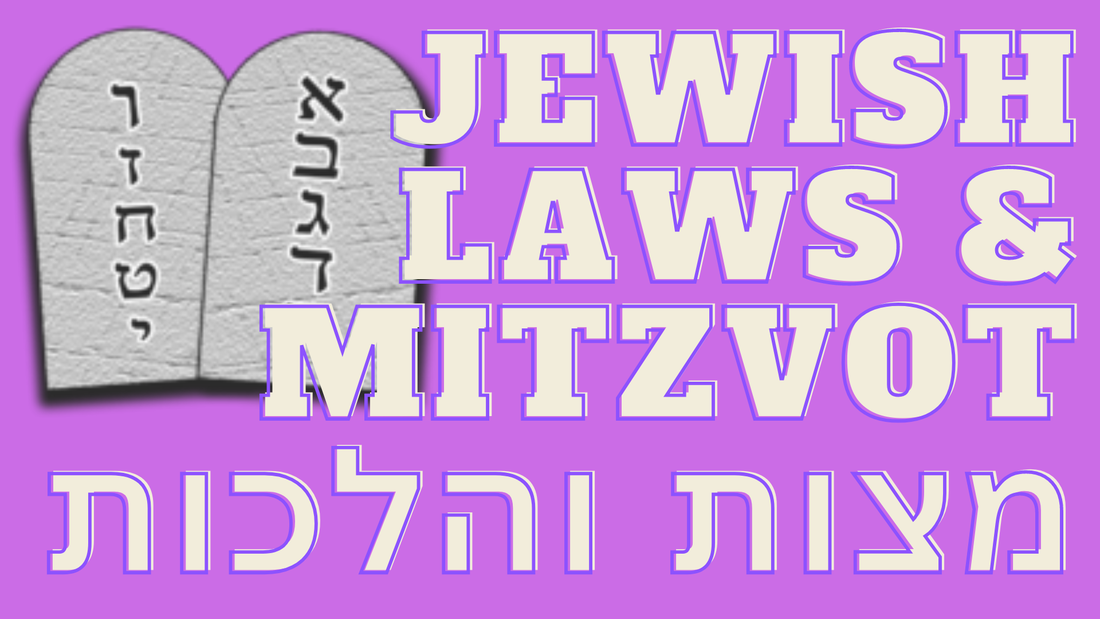
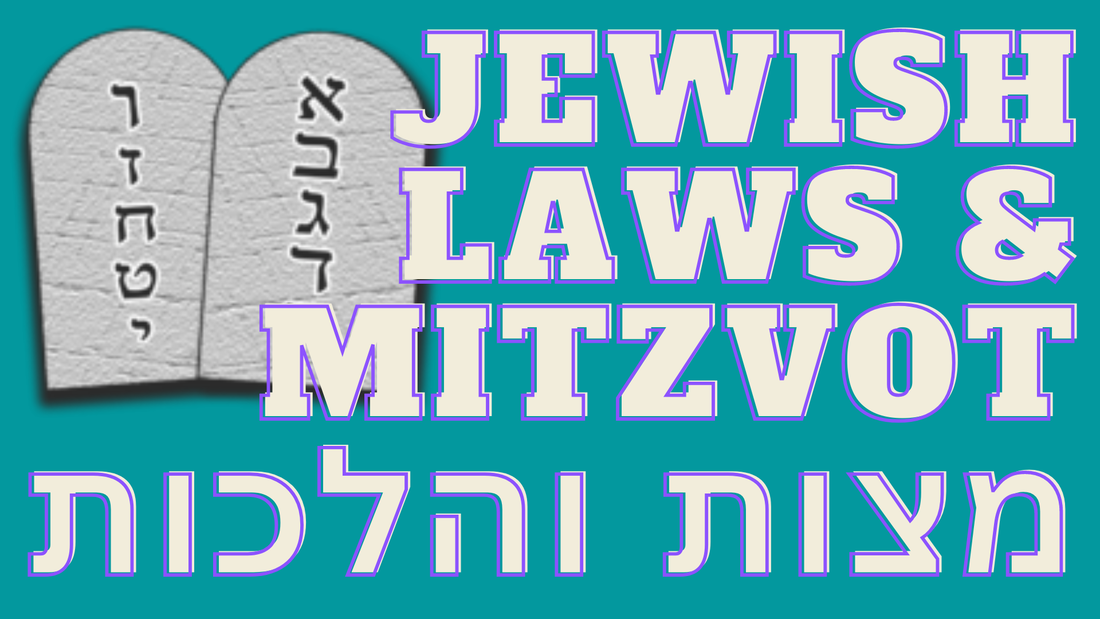




 RSS Feed
RSS Feed

7/18/2024
0 Comments